第7章 ChapterI.The Tread Of Pioneers(7)
He was not allowed firearms at that age, so he shaped for himself a weapon that served him well. This was a slender smoothly shaved sapling with a small bunch of gnarled roots at one end. So expert was he in the launching of this primitive spear that he easily brought down birds and small game. When he reached his twelfth year, his father bought him a rifle; and he soon became a crack shot. A year later we find him setting off on the autumn hunt--after driving the cattle in for the winter-with all the keenness and courage of a man twice his thirteen years. His rifle enabled him to return with meat for the family and skins to be traded in Philadelphia. When he was fourteen his brother Sam married Sarah Day, an intelligent young Quakeress who took a special interest in her young brother-in-law and taught him "the rudiments of three R's."
The Boones were prosperous and happy in Oley and it may be wondered why they left their farms and their looms, both of which were profitable, and set their faces towards the Unknown. It is recorded that, though the Boones were Quakers, they were of a high mettle and were not infrequently dealt with by the Meeting.
Two of Squire Boone's children married "worldlings"--non-
Quakers--and were in consequence "disowned" by the Society. In defiance of his sect, which strove to make him sever all connection with his unruly offspring, Squire Boone refused to shut his doors on the son and the daughter who had scandalized local Quakerdom. The Society of Friends thereupon expelled him.
This occurred apparently during the winter of 1748-49. In the spring of 1750 we see the whole Boone family (save two sons) with their wives and children, their household goods and their stock, on the great highway, bound for a land where the hot heart and the belligerent spirit shall not be held amiss.
Southward through the Shenandoah goes the Boone caravan. The women and children usually sit in the wagons. The men march ahead or alongside, keeping a keen eye open for Indian or other enemy in the wild, their rifles under arm or over the shoulder. Squire Boone, who has done with Quakerdom and is leading all that he holds dear out to larger horizons, is ahead of the line, as we picture him, ready to meet first whatever danger may assail his tribe. He is a strong wiry man of rather small stature, with ruddy complexion, red hair, and gray eyes. Somewhere in the line, together, we think, are the mother and son who have herded cattle and companioned each other through long months in the cabin on the frontier. We do not think of this woman as riding in the wagon, though she may have done so, but prefer to picture her, with her tall robust body, her black hair, and her black eyes--with the sudden Welsh snap in them--walking as sturdily as any of her sons.
If Daniel be beside her, what does she see when she looks at him?
A lad well set up but not overtall for his sixteen years, perhaps--for "eye-witnesses" differ in their estimates of Daniel Boone's height--or possibly taller than he looks, because his figure has the forest hunter's natural slant forward and the droop of the neck of one who must watch his path sometimes in order to tread silently. It is Squire Boone's blood which shows in his ruddy face--which would be fair but for its tan--and in the English cut of feature, the straw-colored eyebrows, and the blue eyes. But his Welsh mother's legacy is seen in the black hair that hangs long and loose in the hunter's fashion to his shoulders. We can think of Daniel Boone only as exhilarated by this plunge into the Wild. He sees ahead--the days of his great explorations and warfare, the discovery of Kentucky? Not at all.
This is a boy of sixteen in love with his rifle. He looks ahead to vistas of forest filled with deer and to skies clouded with flocks of wild turkeys. In that dream there is happiness enough for Daniel Boone. Indeed, for himself, even in later life, he asked little, if any, more. He trudges on blithely, whistling.